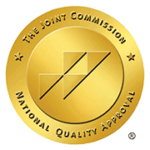Partial Hospitalization Programs vs. Intensive Outpatient Programs: What’s the Difference?

How do you know which mental health treatment is right for you? There are so many choices, it can feel overwhelming.
If you need more care than traditional once-a-week therapy, but don’t require 24/7 support, two helpful options stand out: Partial Hospitalization Programs vs. Intensive Outpatient Programs (PHP vs. IOP).
But what’s the difference between the two, and how can you know which is best for you? Both offer structured support and allow you to maintain a level of independence, but they differ in their intensity, cost, and how they fit into your daily life.
On this page, we’ll dive into some of the differences between PHP and IOP, compare the costs, help you weigh up which option will suit you the best, and also talk about ways that some people combine the two programs for a well-rounded approach to treating their mental health.
If you’re exploring outpatient options for mental health care, this page will help bring you the clarity you are looking for.

PHP vs IOP Mental Health Treatment Explained
Studies show that PHP can be an effective treatment for mental health conditions and a suitable alternative to inpatient treatment.1,2 Research also shows that outpatient treatment for mental health, such as IOP, can be just as effective as inpatient or residential care.3
With this in mind, let’s take a more in-depth look at PHPs and IOPs: what are they, who are they aimed at, and what benefits they bring.
What Is a Partial Hospitalization Program?
A partial hospitalization program (PHP) is an outpatient program designed for the treatment of serious mental disorders. They are useful for patients who need intensive, structured support during the daytime, including a high level of supervised care, but who do not need full hospitalization or overnight care.4 It’s designed for people who need more support than typical outpatient therapy, but don’t need round-the-clock supervision.
Knowing that an intense treatment approach is required is key to understanding partial hospitalization care plans. There are often several hours of treatment each day, for between five and seven days each week. The treatment is timetabled intensively and can include one-to-one therapy, group therapy, medication management, occupational therapy, recreational therapy, and psychoeducation. PHP provides a high level of support while letting you return to the comfort of your home at the end of the day, which is how PHP supports mental health stabilization.
PHP is an effective treatment option for many people. It can be particularly helpful if you are transitioning from full inpatient hospitalization but still need intensive support, as they provide a smooth transition with continuity of care.5 Also, if you experience severe mental health symptoms from depression, anxiety, or PTSD that interfere with your daily functioning, but you don’t feel like you require full-time supervision it can be a good option.
You can benefit from structured therapy and professional monitoring to help stabilize your condition, to avoid having a mental health relapse, or if you’ve already tried standard outpatient therapy options and think you need more frequent and supportive care.
Benefits of PHPs for Mental Health Recovery
Some of the benefits of PHP for mental health recovery include:
- Intensive, structured treatment, without overnight stays
- Range of therapeutic approaches
- Supportive environment
- Evening and nighttime at home
- Effective for many different conditions
- An intensive approach to treatment may help you see results sooner
- More support than IOP
- Encourages independence and responsibility for your long-term recovery
Intensive Outpatient Programs: IOP Treatment Goals and Structure
As with PHPs, an Intensive Outpatient Program (IOP) is a structured, non-residential treatment option for people managing mental health conditions who don’t require full-time care and supervision.
However, the IOP mental health care structure differs from PHP in a couple of key ways:
- IOP offers a higher level of therapy than a standard outpatient program, so the commitment is usually two to three hours a day, three to five days a week.6 These are made up of a combination of individual therapy, group therapy, medication management, and psychoeducation.
- The main aim of an IOP is to stabilize symptoms and enhance coping strategies, all in a structured yet flexible timetable, meaning you can continue with the majority of your daily activities and attend work while getting the level of support that you need.
IOPs provide a great balance between intensive treatment and personal freedom. They can be useful if you need more support than traditional outpatient therapy offers, or are transitioning from inpatient treatment or a PHP. It’s also a great option if you need some intensive therapy support and have a stable, supportive living situation, and wish to continue trying to manage your usual daily responsibilities.
Benefits of IOPs for Mental Health Recovery
Now that you know how intensive outpatient programs work, let’s take a look at some of the benefits:
- It’s a flexible, partial-day program
- You can still attend work or school, and spend time with your family and friends
- It’s a good form of continued support after inpatient or PHP treatment
- You have a structured schedule and a stable routine to follow
- Intensive therapy, education, and medication management are available
- You come away with improved coping skills
Cost Comparison: PHP vs IOP Mental Health
When you are considering whether to choose PHP or IOP, understanding the cost differences is vital. PHPs are more expensive than IOPs as they provide a much higher level of care, more intense use of therapy, and a bigger time commitment than IOPs. The main factors that contribute to the differences in cost are:
- Treatment Intensity and Duration: PHPs provide much more intense care and longer daily treatment sessions. IOPs have shorter and less frequent sessions, so tend to be more cost-effective.
- Medical Supervision and Services: PHPs often use extensive medical supervision and a wider range of therapeutic services compared to IOPs.
- Facility Resources: Using a facility is more expensive in PHPs because of the longer daily treatment times, which increases the costs compared to IOPs.
It’s important to consider how you are going to pay for your treatment, as many insurance plans cover PHP and IOP, although their coverage level varies. It’s always a good idea to talk with your insurance provider to understand the costs they cover to help you make an informed decision.
Mission Connection offers a range of payment options, including flexible payment plans and insurance coverage. You can check out our pricing options here, and get in touch with our team for more details on costs.
Choosing Between Partial Hospitalization and Outpatient Care
Now that you know what is the difference between PHP and IOP, let’s look at some of the factors that might help you decide which option is best for you right now.
How Severe Are Your Symptoms?
Do your symptoms significantly impact your daily functioning? Are you experiencing severe mental health issues, or are you at high risk of relapsing? If so, this is a good example of when to choose PHP over IOP. If your symptoms are milder, IOP could be a good choice.
How Much Structure and Support Do You Need?
Would you prefer a lighter and more flexible therapy schedule, like IOP offers? Or could you benefit more from a very structured environment with more intense support and care, like PHP provides? The time commitment can be quite considerable with PHP, at 5-7 days per week, and 4-6 hours each day, compared to 2-4 hours a day and 3-5 days a week with IOP.
What Are Your Daily Responsibilities?
Do you need to have your treatment fit around your schedule of work time or family commitments? If so, IOP is more flexible than full-day sessions which are typically part of the PHP timetables.
Is Your Living Environment Stable and Supportive?
Is home a good place for you to spend more time recovering? If so, IOP can be a great option. If you think you would benefit from spending more time in a safe and supervised care setting, then PHP may be the way forward.
How Much Medical Supervision Do You Need for Your Condition?
Do you need regular medical monitoring, as you would get from PHP, or would the less frequent supervision in IOP be enough for you?
What Are the Costs and Insurance Coverage for the Programs?
Have you checked your health insurance benefits to know what level of coverage is given for PHP and IOP? Are there any costs you would have to fund yourself? Remember that PHP tends to be more expensive than IOP.
How Can You Find Out More?
If you still aren’t quite sure which option is right for you or would like more information to help you decide, feel free to get in contact with us to discuss what support you are looking for. We can help guide you to the best option to suit your needs.
Combining PHP and IOP Treatment Plans
Once you feel that you don’t need quite so much supervised care and feel more stable, you can then begin transitioning from PHP to IOP. At this stage, your symptoms should feel more manageable, and you keep getting the benefits from having a structured and supported recovery plan.7
Find a Mental Health Program to Suit You
If you’re struggling to manage your mental health symptoms, we are here to help you. At Mission Connection, we are proud to offer PHP and IOP for mental health recovery. Our programs allow you to connect with your clinical team, whenever and wherever it is most convenient for you, as our care can be delivered either in-person, virtually, or as a combination of both.
Our program sessions include group therapy, individual therapy, medication management, and treatment planning, ensuring that you receive the support that you need.
We know that some people worry about the cost of treatment for mental health care, which is why we provide a range of payment options, including insurance plans, flexible private pay, and finance plans to spread the costs over time.
Are you ready to take the first step toward recovery? Contact us today to find out how we can support you.

References
- Rubenson, M. P., Gurtovenko, K., Simmons, S. W., & Thompson, A. D. (2023). Systematic Review: Patient Outcomes in Transdiagnostic adolescent partial Hospitalization programs. Journal of the American Academy of Child & Adolescent Psychiatry, 63(2), 136–153. https://doi.org/10.1016/j.jaac.2023.03.022
- Schene, A. H., & Gersons, B. P. R. (1986). Effectiveness and application of partial hospitalization. Acta Psychiatrica Scandinavica, 74(4), 335–340. https://doi.org/10.1111/j.1600-0447.1986.tb06251.x
- McCarty, D., Braude, L., Lyman, D. R., Dougherty, R. H., Daniels, A. S., Ghose, S. S., & Delphin-Rittmon, M. E. (2014). Substance Abuse Intensive Outpatient Programs: Assessing the evidence. Psychiatric Services, 65(6), 718–726. https://doi.org/10.1176/appi.ps.201300249
- The National Association of Private Psychiatric Hospitals and the American Association for Partial Hospitalization. (n.d.). Definition of partial hospitalization. https://pubmed.ncbi.nlm.nih.gov/10106610/
- Khawaja, I. S., & Westermeyer, J. J. (2010). Providing crisis-oriented and recovery-based treatment in partial hospitalization programs. Psychiatry (Edgmont), 7(2), 28.
- Amft, T. B. (2024, December 12). How an intensive outpatient program (IOP) works. Verywell Mind. https://www.verywellmind.com/what-is-an-iop-intensive-outpatient-program-5521766
- Geng, C. (2023, March 1). What to know about intensive outpatient programs (IOP) and their uses. MedicalNewsToday. https://www.medicalnewstoday.com/articles/intensive-outpatient-therapy





